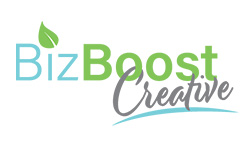One of the first things you need to do when building your first website is to decide on a domain name. It should be a decision you take seriously. As you build trust and recognition around your brand, your customers and clients will become familiar with it. If business goes well, you’ll be stuck with it for a long time.
Make it Easy to Type
The easier it is to type, the easier it is for your customers, clients and prospects to find your site.
Using “u” instead of “you” or “4” instead of “for” works well if that’s how you spell your business name. However, if you’re just shortening your business name to make the domain shorter, it’s going to become confusing for others.
Brandable is Memorable
A domain name that accurately represents your business is easier to remember. For example, it’s easier to remember that we can be found at www.bizboost.com.au, then www.webdesigntailem.com.au.
Easy to Pronounce
There are going to be times where you need to verbally provide your domain name (whether it be over the phone or in person). In an ideal world, you also want your clients, friends and acquaintances to also be sharing the word and directing new people to your website. In these cases, having a domain name that is easier to pronounce is beneficial. You want it to be something that rolls off the tongue.
On a similar note, symbols like hyphens can help structure the domain name but are painful when spelling it out over the phone.
If You’re Using It for Email, Keep It Short
If you’re planning to use your domain name as an email address (for example, info@bizboost.com.au), then you want to keep it short and simple. There’s nothing more tedious than trying to explain over the phone that you can be reached at bob@atozcompanyadelaidehills.com.au.
This can be harder when your business name is quite long to start with. For example, if your business name is Adelaide Meat Supplies, having your domain name as adelaidemeatsupplies.com.au is going to be easy for your others to remember. In these cases, we’ve had some clients who have chosen to register a second abbreviated domain name for emails only. For example, Adelaide Meat Supplies, could also register ams.com.au and use that for email. The domain name, ams.com.au can then be redirected to your website.
Include a Keyword
Some businesses choose to use a keyword in their domain name that describes their business. Examples include www.murraywhitesuffolks.com.au or www.realdealplumbing.com.au. This can be beneficial as it makes it obvious what your business does while keeping your domain name brandable.
The key is to avoid trying to fit too many keywords into the one domain name. As an example, avoid www.poll-merino-south-east.com.au or www.accommodation-bnb-south-australia.com.au. Not only does this make the domain name very long (see point above) but it does very little to help your website in the search results.
Choose the Extension that is Right for Your Business
The term “domain extension” refers to the last portion of your domain name (‘.com.au’ or ‘.org’).
Did you know that there are rules and regulations about who can register a ‘.au’ domain and what purpose they use it for?
As an example, domain names that end in ‘.com.au’ or ‘.net.au’ can only be registered by Australian businesses and used for a commercial purpose. An ABN or ACN must be supplied during the registration process.
A ‘.org.au’ or ‘.asn.au’ domain name can only be registered by not-for-profit organisations like charities, sporting clubs or (for better or for worse) political parties.
Domain names ending in ‘.id.au’ can be used for any purpose. The only restriction is that the registration must be a citizen or registrant of Australia.
These rules and regulations are managed by .au Domain Authority Ltd (or .auDA for short). They also have the power to revoke a domain name licence if they believe the registrant is no longer eligible for their domain extension.
An international domain extension (anything that does not have a country code, like ‘.com’, ‘.net’ or ‘.org’) are more flexible. While they have similar recommended purposes (.com for commercial, .org for organisations), they aren’t monitored or enforced in the same way that Australian domain names are.
If you have any questions about domain names or are unsure what’s best for your business, feel free to contact us.











